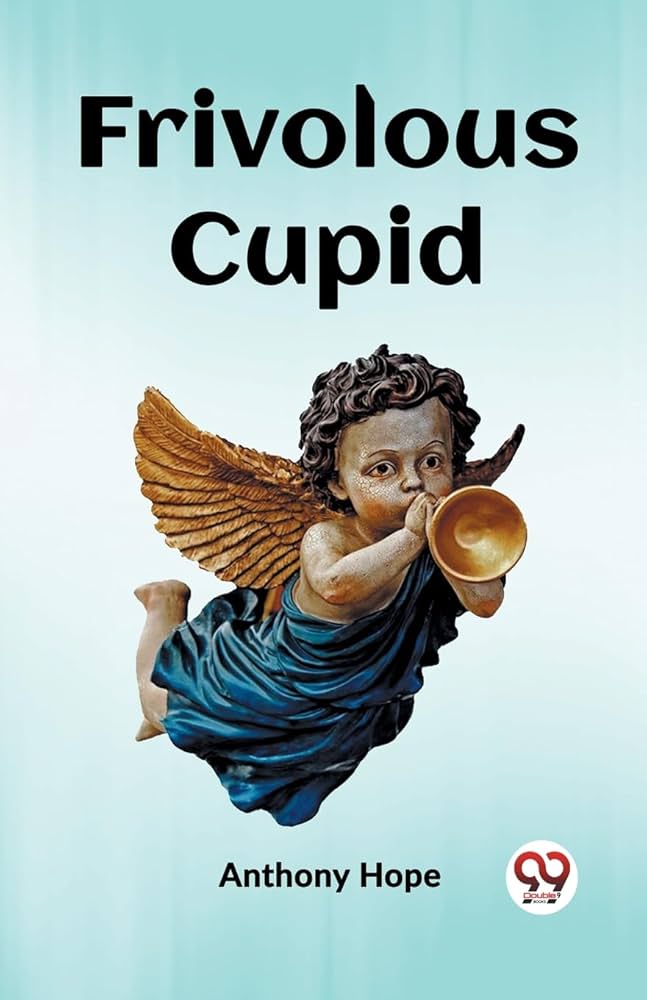Chapter VIII ‑Frivolous Cupid
byChapter VIII opens with Ashimullah once again caught in the tightening grip of court expectations, his personal beliefs increasingly at odds with the roles imposed on him by his royal duties. Although once a Christian, his conversion to Islam was more a matter of necessity than conviction, and the Sultan’s recent insistence on his maintaining a traditional Muslim household—with multiple wives—tests his integrity. Ashimullah has no desire to take more wives, not from fear or disdain, but out of deep loyalty to Lallakalla, the woman he genuinely loves. The contradiction between faith, personal truth, and political pressure places him in a precarious position. However, his refusal to openly defy the Sultan forces him into a clever performance that dances around obedience without surrendering authenticity. What follows is not rebellion, but a spectacle staged for survival.
With a flair for disguise and timing, Lallakalla takes on the personas of several different women, each crafted to align with an ideal of feminine allure expected by the court. From fiery temperament to demure elegance, she performs each character with ease, convincing the court that Ashimullah’s harem is as full and diverse as any vizier’s should be. This grand illusion keeps suspicion at bay while allowing the couple to preserve their monogamous bond. Their nightly performances behind veils and within palace walls are less about deceit and more about staying true to their shared values. Every detail—from the styles of clothing to the tones of voice—has been orchestrated to perfection. Beneath the humor of the act lies a deeper emotional undertone: they must wear masks to remain free.
The turning point arrives when the Sultan, enticed by what he believes to be a harem of unmatched beauty, demands one of Ashimullah’s wives for himself. Ashimullah, alarmed yet composed, prepares for the confrontation that could expose everything. Lallakalla, ever courageous and brilliant, steps forward as the chosen offering—but not without a plan. On the appointed day, adorned in rich silks and veiled in mystery, she enters the Sultan’s presence as the pinnacle of womanly charm. But in a powerful gesture, she lifts her veil to reveal a bald head, symbolizing the erasure of self forced by patriarchal expectations. The court gasps. The Sultan, rather than reacting with fury, is struck by the audacity and honesty of the display.
What might have ended in ruin becomes an awakening. The Sultan, confronted not only by his misjudgment but by the resilience and devotion of his Vizier and Lallakalla, begins to understand the hollowness of his own desires. He recognizes that what he sought in the imagined wives—beauty, loyalty, uniqueness—was already present in Lallakalla alone. The performative expectations placed upon women, and by extension upon Ashimullah, dissolve under the clarity of their message. As laughter replaces tension, the Sultan chooses mercy over punishment, declaring their deception a lesson he won’t soon forget. Their marriage is spared, and Ashimullah’s loyalty, instead of being doubted, is honored.
Through its comedic surface, the chapter subtly critiques rigid interpretations of tradition and authority. The idea that obedience must always take a literal form is upended by Ashimullah’s creative loyalty. His cleverness lies not in defiance, but in fulfilling the Sultan’s commands in spirit while protecting the dignity of his marriage. Lallakalla’s bald head becomes more than a visual twist—it is a symbol of personal agency within a framework that typically allows women very little of it. The Sultan, though powerful, is forced into a moment of reflection that reveals the strength of those he commands. In accepting the couple’s scheme, he inadvertently validates a softer, more human-centered approach to leadership.
This chapter, in its satire and charm, underscores a timeless truth: that true loyalty does not always wear a uniform face, and that those who rule are wisest when they listen rather than impose. Ashimullah’s dilemma mirrors countless historical examples where power demanded ritual over reason, and where subversion was the only path to justice. By preserving their love without open rebellion, Ashimullah and Lallakalla highlight how laughter, grace, and honesty can become tools of resistance. In the end, their survival is not just a happy outcome—it’s a victory of the heart against institutional rigidity.

